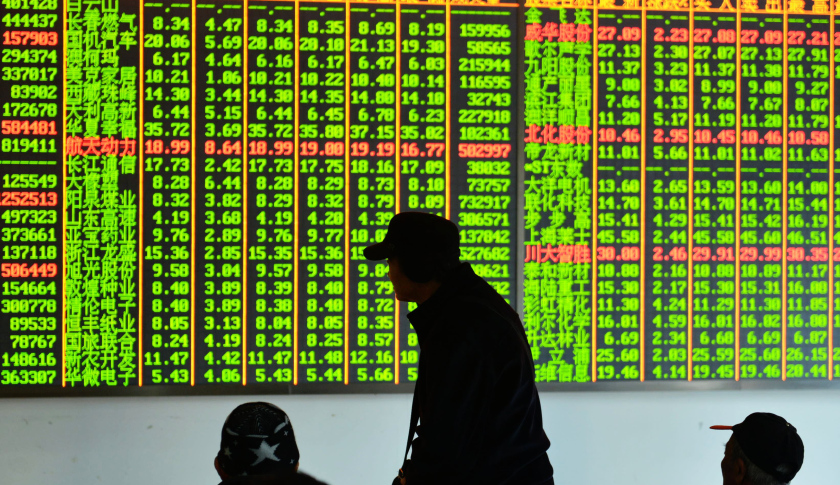(单词翻译:单击)
Surely this has to end in tears, doesn’t it?
结局终将是痛苦的,不是吗?
China’s stock market is not so much defying gravity as defying logic, after a dizzying 32% rally since the end of October. That’s despite increasing evidence of stress in the financial sector and a slowing economy, the latter underlined again Monday by some shockingly weak trade data.
10月底以来,中国股市回升了32%,如此增长实在有些让人看不懂。因为与此同时,越来越多的证据表明,中国金融部门压力不小,而中国经济也在放缓。本周一公布的进出口贸易数据极为疲软,再次凸显了中国经济的放缓。

The Shanghai Composite index rose another 2.9% Monday to close above 3,000 for the first time since early 2010. It had risen 9.5% last week alone, in a week that ended with a spokesman for China’s equivalent of the SEC pleading at a press conference for investors to “respect the market, fear the market and…not blindly follow the trend of speculation.”
本周一,上证综合指数(The Shanghai Composite index)继续上涨,涨幅2.9%,自2010年年初以来,首次收于3000点以上。仅在上周,该指数就上涨了9.5%。上周五,中国证监会新闻发言人在新闻发布会上表示,希望广大投资者“尊重市场、敬畏市场……不要盲目跟风炒作”。
Just to recap: China’s economy is growing at its slowest rate since 2009. Although officials statistics and government pronouncements suggest it’s still above 7% year-on-year, house prices are falling in every major city across the country, bad loans in the banking system are rising at their fastest rate in years, and the central bank has had to intervene on more than one occasion in the last month to keep a febrile domestic money market stable.
简言之:目前中国经济增速处于2009年来的最低点。尽管根据官方统计数据和政府声明,中国经济仍同比增长7%以上,但全国所有主要城市的房价都在下跌,银行系统不良贷款上升速度多年未见,上个月,央行不得不再次出手干预,使狂热的国内货币市场维持稳定。
For those people (who, until recently, included premier Li Keqiang) who don’t entirely trust the official GDP data, hard indicators such as rail shipments and electricity consumption are also on a trend that is at best flatlining. HSBC/Markit’spurchasing managers index suggests manufacturing output and employment both fell in November.
对于那些不完全相信官方GDP数据的人士(中国总理李克强也是其中一员)而言,铁路运输和电力消耗等硬性指标的走势也顶多算得上持平。汇丰/Markit公布的采购经理人指数(PMI)显示,11月,制造业产出和就业双双下跌。
The usual counter-argument to such bearishness is that China is re-focusing its economy on services, which are less energy-intensive and have no real correlation to rail cargoes. And it’s true that HSBC/Markit’sServices PMI was still at 53.0 in November, suggesting a decent clip of growth (even if that too was the slowest rate since May).
对此,常用的反驳论据是,中国经济正将重心转移到服务业上,而服务业能源密集性较低,而且不会影响铁路货运。确实,汇丰/Markit公布的11月服务业PMI仍为53.0,显示服务业仍略有增长(虽然增速也是5月以来最慢的)。
But figures released Monday showed that imports were down 6.7% on the year in November, way below forecasts of a 3.5% increase. Even if much of that was due to lower prices for commodities from oil to iron ore, the figures hardly suggest surging domestic demand.
但周一公布的数据显示,今年11月,中国进口同比下降6.7%,远低于增长3.5%的预期。虽然进口额下降很大程度上是因为石油、铁矿等大宗商品价格下跌,但就数字来看,中国的内需并无大幅增长。


